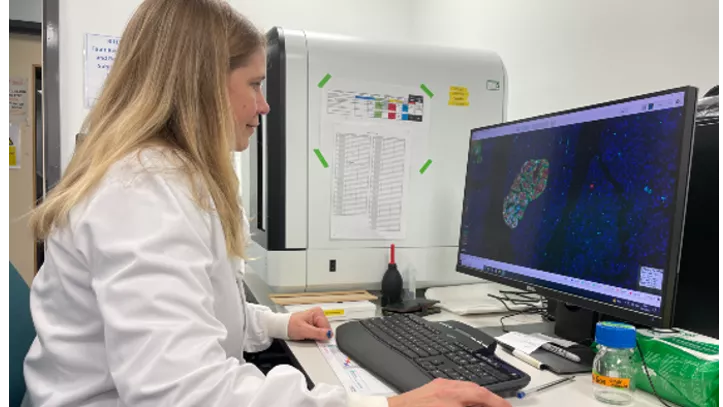
We're excited to reveal the first research projects funded by the Type 1 Diabetes Grand Challenge, our partnership with the Steve Morgan Foundation and JDRF.
£5 million will support a trio of exceptional scientists to develop new and improved treatments for type 1 diabetes and marks the start of a £50 million programme of research, made possible by the Steve Morgan Foundation's landmark investment.
The funding goes to scientists in different corners of the UK, who will each solve different problems to help propel us towards a cure.
Breathing new life into beta cells
Dr James Cantley, at the University of Dundee, will develop new drugs to help people living with type 1 diabetes grow back their own beta cells inside their pancreas.
This approach could avoid problems with the immune system rejecting transplanted ‘foreign’ donor or lab-made beta cells and allow the pancreas to produce its own insulin again.
Dr Cantley said:
“Regenerating beta cells in the pancreas has the potential to revolutionise the treatment of type 1 diabetes, by replacing cells destroyed by the immune attack, and ultimately leading to stable blood sugar levels and a life free from insulin injections."
‘Printing’ a safe haven for beta cells
Dr Victoria Salem, at Imperial College London, will use state-of-the-art 3D bioprinting to 'print' a device that can be implanted into people with type 1 diabetes to deliver a new supply of beta cells.
The device will act as a barrier and protect the beta cells sitting inside, by blocking attacking immune cells, while still letting in vital nutrients they need to survive.
Dr Salem said:
“The dream for a cell based cure for type 1 diabetes is now tantalisingly close - I'm so excited and honoured to be a part of this journey."
Protecting the pancreas in type 1 diabetes
Professor Sarah Richardson (pictured), at the University of Exeter, will probe how and why a person’s immune system destroys their own beta cells and how this process may differ between people with type 1 diabetes. She'll also study how beta cells can fight back against the immune attack.
With this knowledge, scientists could develop an armoury of new treatments that target different lines of the immune system's attack.
Professor Richardson said:
"Ultimately, this will help us tailor existing and emerging therapies to the individual, maximising the benefits for people with type 1 diabetes."
Read more about our Grand Challenge researchers' plans on the Type 1 Diabetes Grand Challenge hub.
